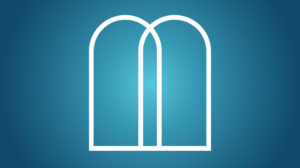Loving Judgment


A king had many sons and he loved the youngest the most. He also had many possessions but he loved his orchard best of all. The king said “I’ll give the orchard I love to the son that I love.” Similarly Hashem says “Of all the nations I created I love Yisrael the most. And from everything I’ve created what I love most is ______. I will give what I love best to the nation I love best.” (Devarim Rabbah parshas Shoftim)
Can you guess the missing word in this midrash? Which creation does Hashem love best? What is this exclusive gift? Torah? Shabbos? Eretz Yisrael?
Wrong. The missing word is din — judgment.
Surprised? You’re in good company. Most of us don’t view judgment as a gift; the average person tries to avoid thinking about it. We wonder why the Av HaRachaman our Merciful Father can’t just overlook our shortcomings and grant amnesty to the sinner. How do we understand the startling perspective of this Midrash?
The Eleventh Principle of the Rambam’s Thirteen Articles of Faith states: I believe with complete faith that Hashem rewards those who observe His commandments and punishes those who transgress His commandments.
In order to understand the function of sechar v’onesh reward and punishment we need to reflect upon the purpose of mitzvos and the ultimate purpose of our creation. In Daas Tevunos the Ramchal explains that Hashem is the very essence of good and He created the world to bestow good upon people. In His wisdom He knew that in order for this good to be complete it must be earned and deserved. A handout may sound inviting but ultimately it’s shaming. Therefore Hashem set up the system of free will and obligation mitzvos and aveiros reward and punishment. We are created as imperfect human beings who are charged with mitzvos to enable us to reach completion and earn our place in Olam Haba.
Two Accounts
When the Rambam elaborates on the principle of sechar v’onesh he quotes an enlightening interchange between Hashem and Moshe Rabbeinu that took place after Cheit Ha’eigel. As Moshe pleads for his people he declares “If You won’t forgive them erase me from Your book” (Shemos 32:32). According to Seforno Moshe is referring to his personal ledger of mitzvos and aveiros. “Deduct some merits from my account ” he offers “and credit them to Klal Yisrael so their judgment will be more favorable.”
Hashem’s response to this proposal is key to understanding the dynamics of din: “Who is the sinner from whose account I ever erased merits in order to exonerate his sins?” If I never even allowed a mitzvah to cancel out an aveirah for the very same person Hashem tells Moshe surely I wouldn’t transfer merits from one party to another!
Mitzvos and aveiros create merits and demerits but these are stored in two independent accounts. Unlike a bank where credit in one place can wipe out a debit elsewhere a mitzvah does not erase an aveirah.
The rationale behind this fact is the guiding principle of reward and punishment: mitzvos and aveiros are not abstract concepts; they affect the intrinsic essence of a person. A mitzvah elevates and purifies; a sin diminishes and defiles. We build ourselves and our future existence as we make our choices. The results cannot be transferred whisked away or ignored.
Thus the merit of a mitzvah is a natural consequence not an external prize. This can be compared to someone who eats healthy food. He is nourishing only his own body; the most generous person in the world cannot share that benefit with another.
The same can be said for the result of sin. As Rav Chaim Volozhin puts it when the king’s best friend commits a crime the king may choose to pardon him because of their close relationship. But if he drinks poison all the good will and love of the king cannot save him from the consequences for the toxin has entered the friend’s system and damaged him internally. Similarly Hashem does not disregard sin because it has poisoned the sinner’s soul.
Of course unlike a mortal king the Almighty Hashem could undo the damage but He generally doesn’t interfere with the system He has fixed for the world. Just as apple trees don’t start producing peaches on demand and poison destroys even when it’s ingested accidentally so does a sin devastate the soul.
This is precisely why teshuvah is such a miraculous gift from Hashem for when done properly it can reverse the damages. Although mitzvos cannot remove a sin they can help facilitate the process of teshuvah. They may ease the way for the repentant make his teshuvah accepted more readily or grant him extra time to make amends.
Life on Credit
There is one other way to absolve a sin: punishment. The Mishnah (Avos 3) uses a parable to depict how this works: The store is open for business the Merchant sells on credit the ledger lies open and the Hand records the transaction. All those who wish to borrow may come and do so but the agents make daily rounds to collect payment whether the person realizes it or not. They have ample evidence to rely upon and the judgment is accurate. And everything is in preparation for the banquet.
This mishnah describes sin and punishment. When a person transgresses Hashem’s Will it’s as if he’s taken merchandise on credit. He is living in Hashem’s world but he’s not paying his dues. Hashem may not call in the loan immediately but if he doesn’t repent payback time will eventually arrive. Hashem has many messengers — suffering pain and death — to collect His debts and the din is precise and incontestable.
Although these words seem bleak and sobering there’s a change in tone at the end: And everything is in preparation for the banquet.
As the Maharal puts it this mishnah’s parting message is that the goal of yissurim suffering is not retaliation. Punishment is not the act of an angry vengeful G-d. To the contrary its purpose is to awaken the sinner to repentance and to cancel his debt so he doesn’t remain in a defective state. The Av HaRachaman does exercise His compassion. He doesn’t give up on us. His goal is to enable man to earn his seat at the eternal banquet.
The Check You Can’t Cash
Punishment can take place in This World or the Next depending on the situation. What about reward?
In his introduction to his famous work the Mesillas Yesharim the Ramchal explains that the ultimate place of reward is in the World to Come: Man was created for the sole purpose of rejoicing in Hashem and deriving pleasure from the splendor of His Presence for this is true joy and the greatest pleasure that can be found. The place that this joy is attained is in Olam Haba… the means which lead a man to this goal are the mitzvos… the place of performance of mitzvos is only in this world.
The sechar of Olam Haba is unfathomable not only because it’s eternal but also because it’s qualitatively different from any experience we know. Rav Eliyahu Dessler described it in this manner: If we were to combine all the pleasures and joys that have been experienced in the history of the world by all people in all generations and on all occasions this cannot compare to a single whiff of Olam Haba.
Furthermore Chazal tell us that full sechar can only take place in the World to Come because there’s simply not enough currency in this world to repay a mitzvah. Imagine winning a 50 million dollar lottery and bringing the check to the bank. The teller may tell you that there isn’t enough money in the bank to cash the check. Similarly all the peace prosperity and pleasures of this world cannot adequately reward a mitzvah. It’s only in the eternal world of Olam Haba that payback can take place.
In the light of the above it’s puzzling that the passages in the Torah promising reward make no mention of an afterlife. They focus solely on happy consequences in this world. Parshas Bechukosai for example begins with these words: If you will go in My ways and observe My commandments I will provide rain…I will provide peace…I will make you fruitful.
The emphasis on material reward in the Written Law and the omission of spiritual reward is an enigma the commentaries explain in various ways.
The Ramban tells us that the Torah need not emphasize the existence of an afterlife because it’s obvious that the soul lives on after death. After all it is cheilek Eloka mi’maal a “portion of Hashem Above.” On the other hand kareis spiritual excision the most severe of all punishments is delineated in the Torah because the cutting off of a soul from its Source is unnatural and therefore must be spelled out.
The material rewards promised in the Torah are not the ultimate reward. In the Rambam’s view they are external motivators and facilitators. We need this help because for example it’s difficult to focus on avodas Hashem when one is fleeing from an enemy or scrounging for food. When a person makes efforts to serve Hashem properly He will enable him to continue to do so without distraction. This can be compared to a travelling salesman who is given an expense account. Since he’s on company business his employer pays for his food and lodging.
On the other hand sometimes an individual who is not working around the clock for the Boss still enjoys material success. In this case Hashem may be rewarding him in the currency that he values. Rav Pincus tells of a tourist in the desert who desperately needs water and at last finds a kiosk selling cold drinks for a dollar. To his dismay he discovers that he has no cash on him. He only has a check made out for $20 000. The owner of the kiosk doesn’t have the funds to cash it for him and he refuses to extend credit. What will the traveler decide? Will he give up $20 000 for a drink worth a dollar?
The answer of course depends on how thirsty he is.
Someone hungry enough for materialism and worldly pleasures may “decide” to take his reward here —a net loss of far more than $20000! This scenario is one solution to the age-old question of why evildoers sometimes prosper in Olam Hazeh.
Praiseworthy is He Who Fears
Years ago I helped organize a conference on Jewish history for seminary students. At the closing session the participants were asked to assess the value of the gathering which had focused on the periods of persecution and destruction in our nation’s past.
I will never forget the simple swift response of one student: “I learned” she said “that Hashem punishes.”
This young lady may have been echoing the words of Rashi on the verse “Praiseworthy is the man who always fears” (Mishlei 28 14) — One who fears punishment will keep far away from sin.
The contemplation of din may not be our most comfortable thought. But it can help us arrive at the ultimate place of comfort and joy.
Sources include: The writings of Rav Chaim Friedlander Rav Shimshon Pincus Rav Moshe Shapiro and Rav Bentzion Epstein.
(Originally featured in Family First, Issue 503)
Oops! We could not locate your form.






